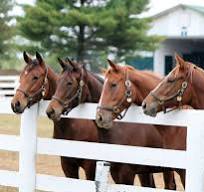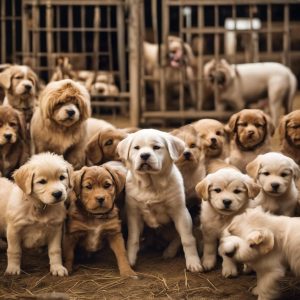Horse farming, also known as horse breeding or horse ranching, involves the breeding, raising, and care of horses for various purposes. Here are some key points about horse farming:
- Breeding Horses: Horse farmers selectively breed horses to produce offspring with desirable traits such as strength, speed, agility, temperament, and conformation. Breeding decisions are based on the intended purpose of the horses, whether it’s for racing, show, work, or companionship.
- Facilities and Land: Horse farms require adequate land and facilities to accommodate the horses’ needs. This includes spacious pastures for grazing, stables or barns for shelter, and fenced areas for exercise. Access to clean water, proper ventilation, and safe enclosures are essential.
- Care and Nutrition: Horse farmers are responsible for the daily care and nutrition of their horses. This includes providing a balanced diet, regular grooming, hoof care, vaccinations, deworming, and routine veterinary check-ups. Horses also require exercise and social interaction to maintain their physical and mental well-being.
- Training and Conditioning: Depending on the purpose of the horses, horse farmers may also engage in training and conditioning activities. This can involve breaking in young horses, teaching them basic commands, and preparing them for specific disciplines such as racing, show jumping, dressage, or trail riding.
- Sales and Marketing: Horse farmers may sell their horses to individuals, equestrian facilities, or other farms. Effective marketing strategies, such as online listings, participation in horse shows or auctions, and networking within the equestrian community, can help attract potential buyers.
- Regulations and Licensing: Horse farming is subject to various regulations and licensing requirements, which may vary depending on the location. It’s important to familiarize yourself with local laws regarding horse breeding, transportation, sales, and animal welfare.
- Considerations and Challenges: Horse farming can be a demanding and capital-intensive venture. It requires significant investments in land, facilities, equipment, and the ongoing costs of horse care. It’s crucial to have a solid understanding of horse behavior, health, and management practices. Additionally, horse farming can be affected by factors such as fluctuating market demand, competition, and the risks associated with breeding and raising horses.
If you are interested in horse farming, it’s advisable to gain experience and knowledge by working on an established horse farm, attending equine-related courses or workshops, and consulting with experts in the field. Building a network within the equestrian community can also provide valuable guidance and support.


